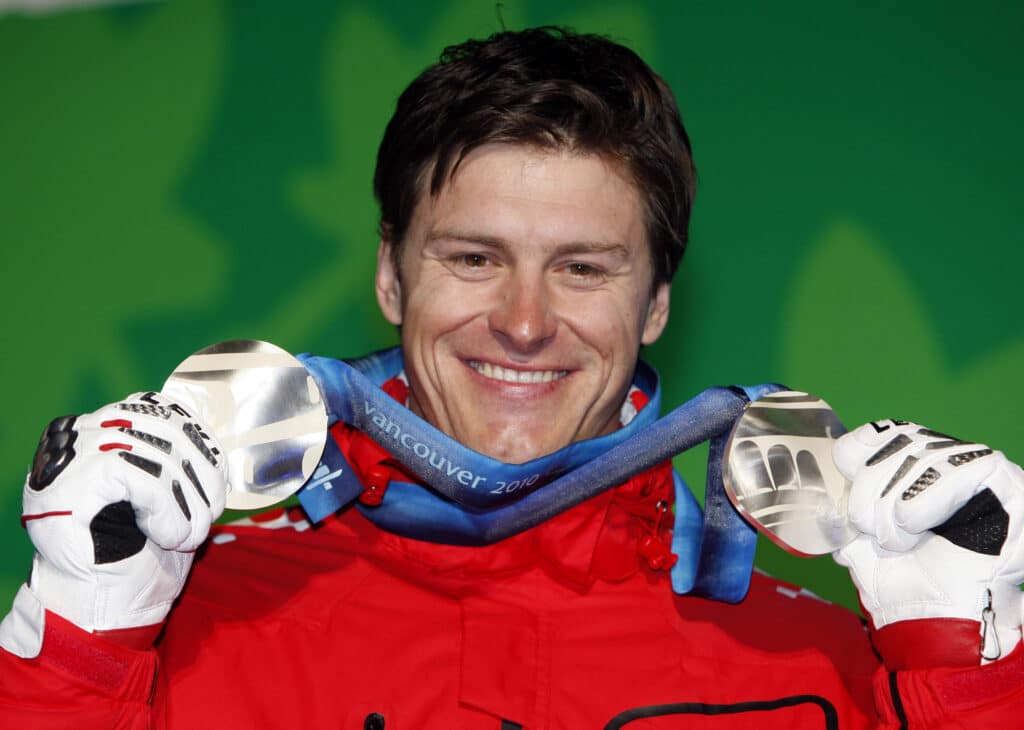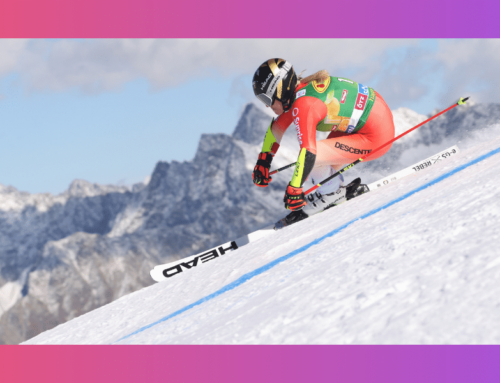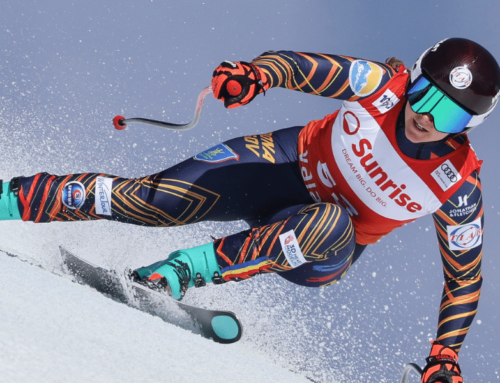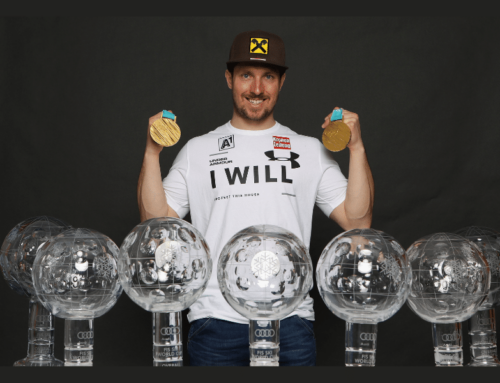The Unforgettable Journey of Team Kostelić: A Family’s Triumph in Alpine Skiing
Ante, Ivica and Janica Kostelić GEPA pictures
Amazing Accomplishments in Alpine Skiing
Remarkable achievements mark Ivica Kostelić’s career in alpine skiing. He won 26 World Cups in Slalom, Super-G, Parallel, and Combined, earning 60 podiums. Ivica captured the 2011 overall World Cup title and earned four other event globes, two in Slalom and two in Combined. His success extended to the Olympics, where he won four silver medals, and the World Championships, where he earned three medals, including a gold in the 2003 St. Moritz Slalom.
Ivica’s sister, Janica Kostelić, retired young in her early twenties due to chronic pain, but not before leaving an indelible mark on the sport. She won three overall and three slalom season titles, achieved 30 World Cup victories across all five disciplines, and stood on the podium 55 times. Her Olympic accolades include four gold medals, three from the Salt Lake City 2002 Olympics and one from the Torino 2006 Olympics. Janica also secured five World Championship gold medals during her career.
click on images to enlarge


Early Beginnings and Family Influence
Croatian Ivica Kostelić’s journey in skiing began at a very young age in an unlikely place: Macedonia. “I started skiing in Macedonia when I was three years old because my dad was a handball coach there,” Ivica recalls. However, his ski racing career didn’t begin until he joined Zagreb Ski Club, where his dad was a coach, at seven. “My dad took over my training when I was ten, and that’s when our family program started,” he says.
Ivica’s sister, Janica, joined the family program at eight despite initially being more interested in tennis and handball. “She was first deemed as a complete anti-talent because she was falling all the time,” Ivica laughs, “but even in her first year of skiing, she showed amazing talent and quickly became very good.”
Theories on Volume and Course Setting
Ivica attributes much of their success to the intense training volume and the challenging course settings their father, Ante Kostelić, delivered. “Our training volume was immense, especially as we were entering FIS racing, which was 15 back then. We would train all day, with short breaks, and the volume was out of this world,” Ivica explains. This high training volume helped the Kostelić siblings develop exceptional endurance and efficiency in their skiing. “You start to ski very efficiently through repetition, which is always fast because you’re not making extra moves,” Ivica notes.
Ivica’s father, Ante Kostelić, played a crucial role in their success with his creative approach to coaching and course setting. “My dad believed that the essence of all teaching is experience, not verbal instructions. His creative course settings helped us learn and adapt,” Ivica says. Ante’s philosophy was that sport should push human limits, a belief that significantly influenced their training and competitive strategies. “He believed that sport is about approaching human limits and that you can’t teach efficient skiing; it comes from repetition and experience.”
Ivica emphasized that his father admired athletes who learned from their environment, notably Bode Miller. “My dad always said, look at Bode. Nobody was ever teaching Bode how to ski, and that’s why he’s so good. The mountain taught him,” Ivica explains. Ante’s philosophy was rooted in the idea that experience on the mountain is the best teacher.
Importance of Volume Training During Early Teens
A critical aspect of the Kostelić training philosophy was the timing and extent of their training volume. Ivica emphasizes that the most intensive volume training occurred before they were fully grown adults. “We did a lot of volume before we turned 16 or 17. It’s impossible to maintain that volume level once your body is fully grown; it would break down,” Ivica explains. He further highlights the importance of this early volume in developing efficient skiing techniques. “When you do extensive training volume while growing, you’re often skiing tired. That’s when you learn to ski efficiently because your body removes unnecessary movements to survive.”
However, when Ivica and Janica were very young, their training balanced on-snow time with fitness. “We skied two to three days a week and did fitness training three days a week,” Ivica notes. This balance was crucial in building a solid foundation for their future success.
Family Dynamics and Challenges
Growing up in a family deeply committed to skiing had unique benefits and challenges. “The benefit was the constant care and progression in our development. We didn’t switch coaches yearly, and our team was always with us, making us feel peaceful,” Ivica explains. However, this also meant that their personal lives were closely controlled. “Even our rest days were monitored, which was tough sometimes because, as kids, we wanted some freedom,” he adds.
Financial challenges were a significant part of their journey, especially before they started earning prize money. “We slept in forests and had minimal financial support from the federation. Finding sponsors in Croatia during the war was nearly impossible,” Ivica recalls. It wasn’t until 1998, when Vedran Pavlek took over the Croatian Ski Federation, that they started receiving proper support.
Coaching and Contributions
Having their father as a coach had profound benefits for Ivica and Janica. “The biggest benefit was the constant and knowledgeable care we received. My dad was strict but very effective in pushing us to our limits,” Ivica says. The challenges, however, included balancing family dynamics and the intensity of their training regimen. “It was tough to have a life outside of our training because everything was controlled,” he adds.
Ivica deeply admires his father and credits him significantly for their success. “My dad was always pushing us to our limits and beyond. His belief in us and his creative approach to coaching were instrumental in our achievements,” Ivica emphasizes. “He was strict, but he was also incredibly dedicated. We owe much of our success to his relentless pursuit of excellence.”
Later in Ivica’s career, adding Italian World Cup winner Kristian Ghedina to their team brought a new dynamic. “Ghedina was a positive, crazy guy who fit well into our team and helped a lot with the speed events,” Ivica recalls fondly. “I remember once in Zermatt, Ghedina decided to ski straight down a steep, open glacier face (off-piste) without turning. He straight-lined down, and I thought, ‘This is impossible.’ When he reached the bottom, he looked at his watch and said, ‘One hundred thirty (kph); I thought it would be more.’ That’s how crazy he was.”
Admiration for Janica
Ivica admires his sister Janica as an athlete and as his best friend. “Janica was born a champion, and she always inspired me. Even though she was younger, her talent and determination were incredible,” Ivica says. Their close relationship was a crucial part of his experience. “We only had each other; we would hang out as friends after training, climbing rocks and mountains. Those were some of the best times,” he reminisces.
Personal Life and Future
However, Ivica’s four children are not ski racers, and neither are his sister’s children “They are more interested in football, and I support them in whatever sport they choose,” he says. Reflecting on his career, Ivica cherishes his ability to compete well in all skiing events. “The most cherished aspect of my career is that I was able to ski well in all events, which is the hardest to achieve,” he states.
As a coach, Ivica applies lessons from his career to his coaching. “I emphasize the importance of volume training before intensity, as it builds a strong foundation and resilience,” he says. He advises aspiring athletes and their families to utilize their unique advantages and not just imitate larger teams. “Support and persistent training are crucial,” he emphasizes.
Advice to Families Following Their Footsteps
Ivica offers specific advice for families looking to emulate the Kostelić ski racing model. “If you have a family team, don’t imitate the big teams. You have certain advantages they don’t. Use those advantages and adapt your training to your resources,” Ivica advises. He stresses the importance of leveraging the unique benefits of a family unit. “You have constant care and progression. Your team knows you deeply and can provide tailored support. Don’t be afraid to use that to your advantage.”
However, Ivica also acknowledges the challenges. “The biggest challenge is having a life outside the family program. You need to find a balance and allow for some personal freedom,” he says. He also emphasizes the importance of training with others to gain different perspectives and experiences. “Try to join other teams for training whenever possible. Competing with others can enhance your training quality.”
Ivica’s passion for skiing remains strong, but he sees himself enjoying the slopes as a skier, not a coach, in his later years. “Coaching is tough, and I’ve seen the challenging life of a ski coach. I’d rather ski for fun,” he concludes.
Conclusion
The Kostelić family’s journey in alpine skiing is a testament to the power of innovation, persistence, and family support. Ivica and Janica Kostelić achieved remarkable success and inspired a generation of Croatian skiers. Their story is a powerful reminder of what can be accomplished with dedication and a unique approach to training and competition.
















